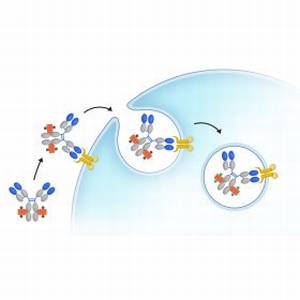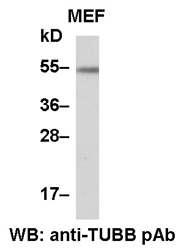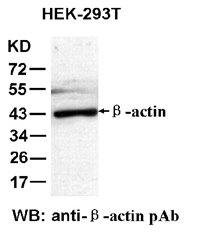
Size:50 μg
Price:$ 1889
Brand:NewEast  Place of Origin:USA
Immunogen:
Place of Origin:USA
Immunogen:
| Cat. # : 22310 | |
| Size : 10 μg; 50 μg and 100 μg | |
| Application : Antibody internalization labeling kit | |
| Description: IgG labeling reagent utilizes a pH-sensitive fluorescently labeled Fc binding protein to bind to IgG antibodies from various species such as human IgG1、IgG2 and IgG4, rabbit IgG, mouse IgG2a and IgG2b and measure antibody internalization activity. | |
| Background: pH Sensitive IgG labeling reagents provide an easy solution to measure internalization activities of antibodies. This reagent utilizes a pH-sensitive fluorescently labeled Fc binding protein that binds to IgG antibodies from various species, resulting in the formation of a fluorescently labeled antibody-reagent complex. After antibody internalization, the surrounding pH becomes acidic and significantly enhances fluorescence signal of antibody-reagent complex. The fluorescence intensity can be used as an indicator to determine the internalization activity of antibodies. By measuring the strength of the fluorescence signal, researchers can assess the efficiency of antibody internalization into cells. This information is crucial in understanding the cellular uptake mechanism of antibodies and assessing their efficacy in targeted therapies or diagnostic applications. Additionally, monitoring the fluorescence intensity can also provide insights into the kinetics of antibody internalization, helping researchers optimize experimental condition and improve the design of antibody-based drug delivery systems. | |
| Recommended Dilutions : Antibody:IgG labeling reagent = 2:1 in molarity | |
| Detection Method: Flow cytometry, detected with FITC or AF488 filter | |
| Excitation-Emission : 505/525 nm | |
| MW: The product has a MW of 33.4 kDa | |
| Formulation: Lyophilized from 1xPBS (pH 7.4). Normally 5% – 8% trehalose is added as protectants before lyophilization. Please see Certificate of Analysis for specific instructions. | |
| Storage & Shipping: The reagents are supplied in lyophilized form. We recommend storing the vial(s) at -20℃, desiccated and protected from light. Once reconstituted, the reagents can be stored at 2-8℃ for 1~2 weeks, or with 50% glycerol at -20℃. | |
 Figure 1. The fluorescent signal from GPRC5D ADC BMK-22310 conjugate is only detected in GPRC5D positive cells (K562-GPRC5D stable expression cell line), indicating specific internalization.
Figure 1. The fluorescent signal from GPRC5D ADC BMK-22310 conjugate is only detected in GPRC5D positive cells (K562-GPRC5D stable expression cell line), indicating specific internalization. |
|
 Figure 2. Stability test. Three storage methods are tested: lyophilization and reconstitution (black), liquid with 50% glycerol at -20℃ (red), liquid at 4℃ (blue). All three methods exhibit excellent stability.
Figure 2. Stability test. Three storage methods are tested: lyophilization and reconstitution (black), liquid with 50% glycerol at -20℃ (red), liquid at 4℃ (blue). All three methods exhibit excellent stability. |
|
Select By Alphabet
A B C D E F G H I J K L M N O P Q R S T U V W X Y Z
Subscribe to our latest email
(+1) 610-945-2007 [email protected] [email protected] 840 First Avenue, Suite 400, King of Prussia, PA 19406
Copyright © 2010 - 2024 NewEast Biosciences | All rights reserved
Bioactive Transmembrane Proteins Antibodies for Transmembrane Proteins G Protein | GTPase




 Add to cart
Add to cart
 Download
Download



